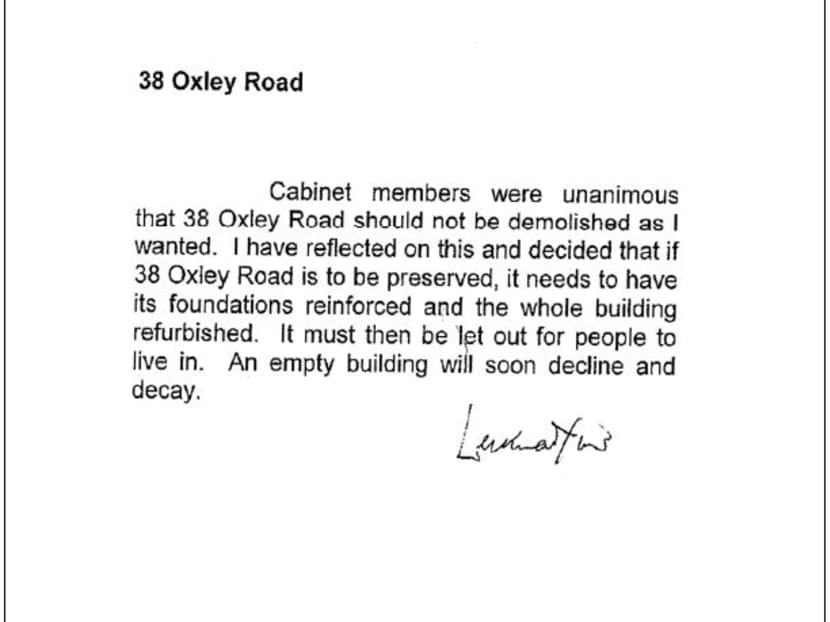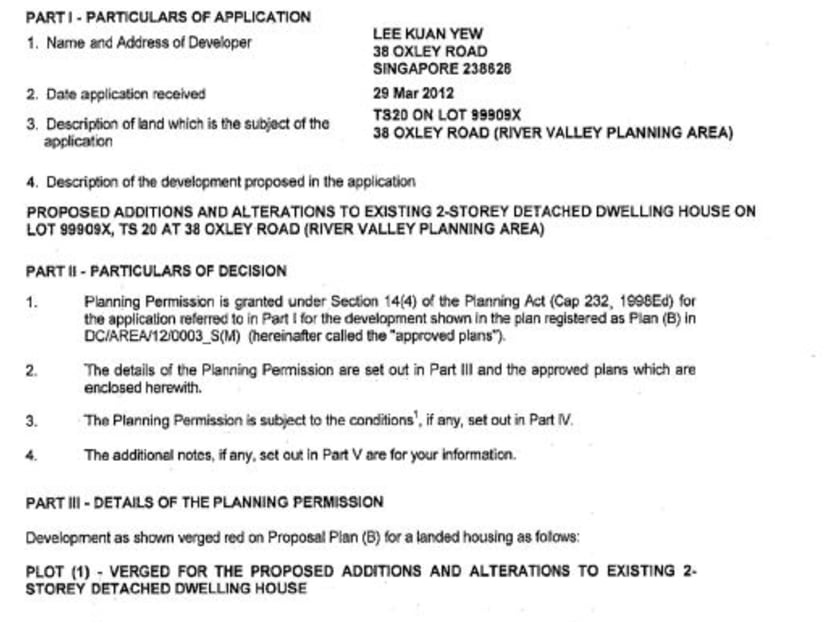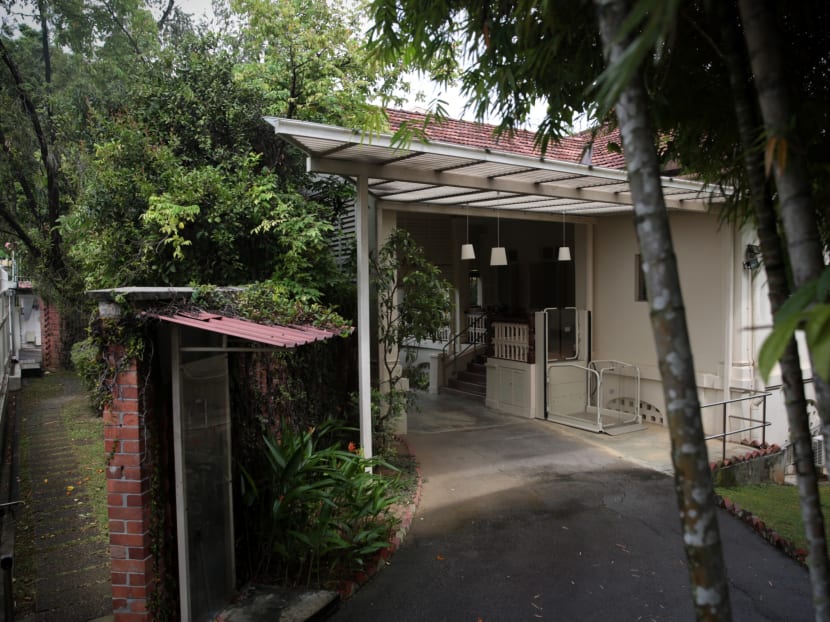Oxley Road panel relied on demolition clause, renovation plans and letter to Cabinet as ‘objective evidence’
SINGAPORE — Apart from representations from Mr Lee Kuan Yew’s three children in their personal capacities, the Ministerial Committee studying various options for the Lee family home said in its report released on Monday (Apr 2) that it relied on the “objective evidence” placed before it in reaching its views.
SINGAPORE — Apart from representations from Mr Lee Kuan Yew’s three children in their personal capacities, the Ministerial Committee studying various options for the Lee family home said in its report released on Monday (Apr 2) that it relied on the “objective evidence” placed before it in reaching its views.
In particular, there was an emphasis on “contemporaneous documents and statements made personally by Mr Lee”. The committee said it found three aspects to be particularly useful: The demolition clause in Mr Lee’s Last Will dated Dec 17, 2013, Mr Lee Kuan Yew’s letter to the Cabinet dated Dec 27, 2011, and the renovation/redevelopment plans for 38 Oxley Road which Mr Lee Kuan Yew submitted to the Urban Redevelopment Authority (URA) in March 2012, and obtained approval for.
Recognising that are differences in views among Mr Lee’s children about his thinking and wishes about the family home, the committee said it looked at the objective evidence as well as the views expressed by Prime Minister Lee Hsien Loong, Dr Lee Wei Ling and Mr Lee Hsien Yang.
The demolition clause states that it was the wish of Mr Lee Kuan Yew and his late wife, Madam Kwa Geok Choo, that the house be demolished immediately after his death or, “if my daughter, Wei Ling, would prefer to continue living in the original house, immediately after she moves out”.
“I would ask each of my children to ensure our wishes with respect to the demolition of the House be carried out,” the Will adds. “If our children are unable to demolish the House as a result of any changes in the law, rules or regulations binding them, it is my wish that the House never be opened to others except my children, their families and descendants.”
The committee noted that the demolition clause contains two parts: The first “clearly sets out Mr Lee (Kuan Yew)’s wish for the property to be demolished”, and the second which specifies his wishes in the event demolition was not possible. “In such an event, Mr Lee did not want the property to be open to the public,” the committee said. It added that the clause “contemplates more than one outcome, and acknowledges the possibility that demolition may not take place”.
The committee also cited Mr Lee Kuan Yew’s last formal communication to the Cabinet on the property. Following a meeting with the Cabinet in July 2011 where he presented his views and also listened to what the ministers had to say.

Mr Lee Kuan Yew wrote a letter to the Cabinet: “Cabinet members were unanimous that 38 Oxley Road should not be demolished. I have reflected on this and decided that if 38 Oxley Road is to be preserved, it needs to have its foundations reinforced and the whole building refurbished. It must then be let out for people to live in. An empty building will soon decline and decay.”
The letter to the Cabinet was sent less than a week after he had executed his Second Will on Dec 21, 2011, which also contained the demolition clause, the commmittee pointed out. “The letter acknowledges that the property may be preserved, and his views if that were to happen,” the committee added.
In Jan 2012, Mr Lee Kuan Yew approved detailed plans to entirely overhaul the interior living areas while retaining the external structure and the basement dining room.
“The renovation plans appear to have been specifically prepared with conservation requirements in mind,” the committee said. The plans were then approved by Mr Lee Kuan Yew for submission to the URA in March 2012, and he affirmed these plans in April and May 2012 after the URA’s approval was obtained.

The committee concluded that Mr Lee’s preference was for the property to be demolished. He was also aware that the Cabinet and others, including senior journalists, were opposed to demolition given the property’s historical and heritage value as well as their reading of public sentiments.
“In view of this, Mr Lee had further reflected on the matter and was prepared to accept options other than demolition, provided that suitable arrangements were made to ensure that the property was refurbished and kept in a habitable state, and the family’s privacy was protected,” the committee reiterated.







